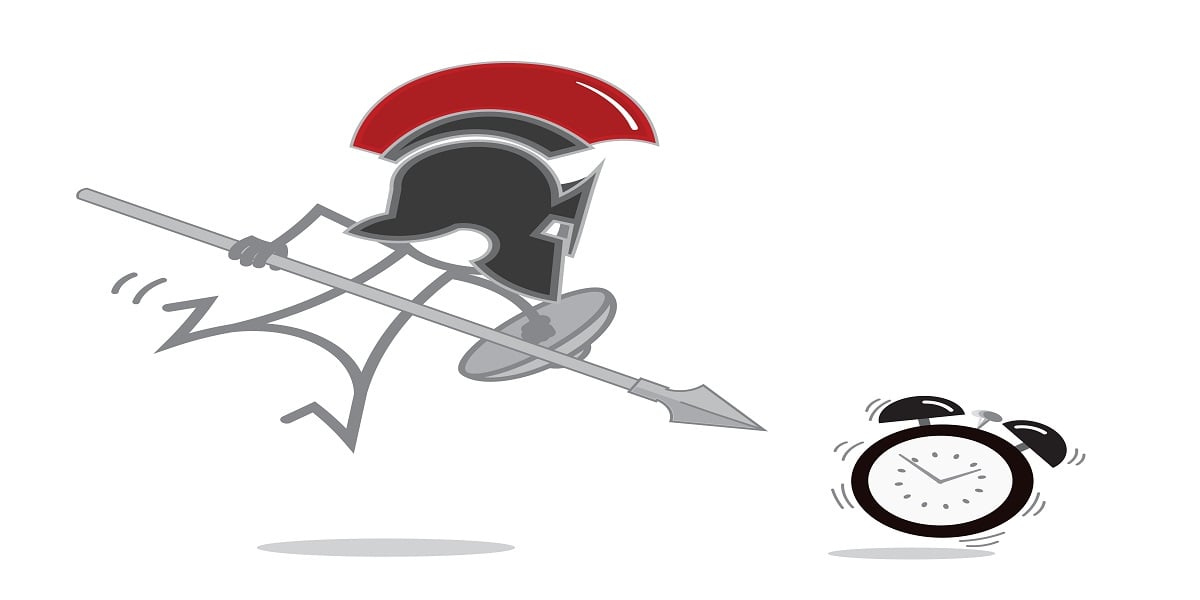A son to a Spartan King, Leonidas succeeded the throne when his older brother Cleomenes died in mysterious circumstances.
With his brother failing to produce a male heir, Leonidas became king. He’s a military and political trainer.
As with all the other men in Sparta, Leonidas had undergone training since his childhood to become a warrior. In those days, they called the Spartan warriors as the hoplites.
They used a round shield with iron sword. During battles, the Spartans would use the phalanx formation where the shields would overlap and serve as a defense in a frontal attack. However, this formation has a weakness.
Once the phalanx breaks, the enemies can attach from the rear which will render the forces vulnerable. In fact, this was the grave mistake that cost Leonidas his defeat at the Battle of Thermopylae.
Life of Leonidas
The mother of Leonidas was not just the wife of his father but was his niece.
His mother took time to bear a child that the administrators finally convinced the King Anaxandridas to marry another wife.
He refused to set aside his wife but agreed on marrying a second wife. His second wife bore a son named Cleomenes who was Leonidas’ older half-brother. Shortly after the second wife bore the king’s son, the first wife gave birth to Leonidas.
And since Leonidas was not considered as the heir to the throne, he had to undergo the notorious training that every Spartan child had to experience. When the king died, Cleomenes became the king. Many were outraged by his rule because of his failure attempts.
When he was killed, Leonidas ascended the throne and he married the daughter of Cleomenes, Gorgo. In 481 BC, Leonidas lead the Greek forces that stopped the Persian invasion of Greece.
Battle of Thermopylae
After receiving the request to defend the Greeks against the invading Persians, the Spartans went to the Oracle at Delphi.
They consulted the oracle to know about the outcome of the war. Leonidas alongside his Spartan warriors marched to battle against Xerxes Army at Thermopylae. He only has a small force with about 1200 men whereas the Persian army stood strong with 7000 men. Sparta’s contribution was only 300 and they faced a big army.
Outnumbered, the Greeks had to face the Persian army who have successfully invaded a lot of territories and even the north part of Greece.
Xerxes had to wait for 4 days thinking that the Greeks would surrender. But on the 5th day, the Persians finally launched their attach.
The Greeks were able to defend their position in the next two days where they managed to kill a lot of men from the enemy troops. In fact, two of Xerxes brothers died in the battlefield.
But on the 7th day, Ephialtes betrayed the Greek army when he aided Hydarnes, a Persian general to the path in the mountain that showed the vulnerability of the Greeks- the rear.
At that time, Leonidas sent his troops while the Thespians said that they would never leave.
And so during the battle when the rear side of the Greek army was attacked, the Thespians fought alongside the Spartans.
With the Persians able to attack the rear, almost all of the forces were killed. Some of the Thebans surrendered to the Persian king but Leonidas died in battle. The Spartans were able to retrieve his body and they protected it.
After the Battle
Despite the Spartans losing the battle, Leonidas was known for his bravery and his sacrifice.
The Persians continued to make its move all the way down to Boeotia. But in September 480 BC, the Athenians defeated the Persians in a decisive battle at the Battle of Salamis that forced the Persians to finally go home.
Leonidas might have lost the battle but he showed how it was to be a Spartan warrior and how he’s willing to make that ultimate sacrifice to protect the Greeks.
Because of his personal sacrifice and bravery in the battlefield, he became extremely popular to the point that there were even cults established.
It was part of the customs of the Greeks where they worship dead heroes. 40 years after the battle, the Spartans retrieved his remains and built a shrine in his honor.
